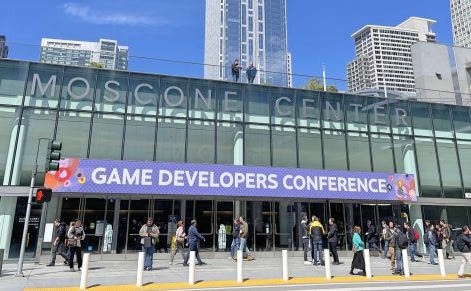Lightspeed Studios is an international development studio owned by Tencent. As part of GDC in San Francisco last month, the studio held its own summit with ten lectures covering the latest techniques in game development. PocketGamer.biz was present during the talks about Lightspeed Studios’ tech strategies, including Fan Zhang’s talk, entitled “PUBG MOBILE: Performance Optimization on Mobile Platform”.
His talk covered the challenges of: competitive games requiring more and more players; mobile devices are fragmented and diverse, with over 22,000 models available; and the proportion of those devices which are low-end is over 55%.
After his lecture, we sat down with Fan Zhang, engine team lead of PUBG Mobile. With nine years of experience in mobile game development, he’s worked on a variety of games, primarily concentrating on mobile game performance optimization and real-time rendering. We spoke about these challenges and the tools that are available to the developers of PUBG Mobile today.
Unreal, RenderGarden and other tools
Let’s get straight down to business – what is the biggest optimisation challenge facing a game like PUBG Mobile? “The challenge is the many devices we have in the market,” he stresses. “We want to make sure all the devices offer a good performance and a good experience.”
Zhang continues: “Primarily, we have two steps to tackle that. One is, we’ll break up the engine functionality into different modules, and measure the performance of the modules independently. We’ll also develop a specific in-house tool to help for testing those performances. We have a set of tools we use for various purposes. Firstly, this in-house tool, which we created for ourselves, is mainly for monitoring the performance of the GPU, the CPU, the temperature. Once we notice a problem, we use the profiling tool to diagnose the specific functions of modules. We also use tools from Samsung, and even RenderGarden to identify rendering problems.”
The challenge is the many devices in the market. We want to make sure all devices offer good performance
Fan Zhang
Because PUBG Mobile is “a realistic art-style game”, Unreal is the obvious choice of 3D engine. But also, confirms Zhang, “Unreal is also better performing at supporting a big world kind of game.” In his GDC lecture, Zhang spoke at length about tools for optimising Unreal. He identified four key ways to do this: loading less and smoothly, drawing less, lightweight rendering, and ticking smoothly.
“Our current angle is trying to make sure that the game can be compatible on as many devices as we can,” he tells us afterwards. “We have different strategies for lower and higher level devices. So [my advice] for other developers: if they are creating a competitive game and are trying to reach as many players as we do – we recommend they follow our whole, entire strategy. But if they’re trying to be a more visually appealing product, they might choose a different approach, because those might bring better visuals, but at the cost of performance.”
Lightspeed Studios at GDC 2023
What challenges still lie ahead? “There are three aspects of what we’re trying to do at the moment,” reveals Zhang. “One is: with PUBG Mobile itself, they are still adding features. There’s a natural contrast between the new features and the performance. We’re still trying to keep the performance good while we’re adding more campaign pages.”
He continues: “The second is for the engine optimisation itself. We’re still trying to do more optimisation to bring better performance. There are high-end devices where we’re trying to add a few new graphic features. We’re trying to make it look good, but that will add a performance cost. We’re still investigating the compromises!”

Lightspeed Studios is most famous for co-developing PUBG Mobile alongside Krafton. However, it has created over 50 games across multiple platforms and genres for over four billion registered users. There is more about its work at the official website. Other talks by its representatives included showcasing AI-based solutions, including “Wobbledoll”, a self-developed, machine-learning method for generating high-fidelity motion, and an exclusive look at the upcoming open-world mobile survival game, UNDAWN. Fan Zhang’s colleague Richard Li lectured about a new XPR methodology for optimising and scaling open-world games, and PocketGamer.biz interviewed him here.
